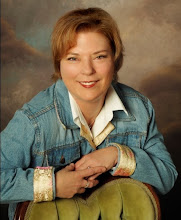I cannot carry a tune so I mouth the words as I stand whenever the national anthem begins. Initially I was angered at Colin Kaepernick’s protest sit-down on August 26, 2016, when the national anthem was played. How ironic, I thought, that a football player who plays a game woven with politics and big money and tied into the military and traditionally overtly patriotic, would disrespect the very symbols that support his (12 million dollars a year) livelihood. And, without any risk to himself or to his professional status, as the players are not required to stand during the ceremony. But then something happened, a chain reaction of events and voices in support of his statements that caught my attention and made me examine my premise. I have since reconsidered.
It is the ironies that are much like a can of wiggly assumptions being let out that made me think about Kaepernick’s protest from another perspective. I have always had trouble with "The Star Spangled Banner" being our national anthem; it is a war hymn, glorifying the victory of the Americans against the British at Fort McHenry in the War of 1812. The United States prides itself on being the peace-keeper of the world. In the War of 1812, there were ex-slaves fighting with the British against their former owners, which makes my favorite goose-bumping refrain, “O’er the land of the free and the home of the brave”, hypocritical.
It is a difficult song to sing for best professional singer, let alone the average person, but it has been preformed magnificently by many. And, spoofed and lampooned and disparaged by high and low minded of all genres. Remember Jose Feliciano’s performance at Tiger Stadium? Remember athletes Tommie Smith and John Carlos with raised fists at the 1968 Olympics medal ceremony?
Sadly, in 2005, a government-sponsored program, the National Anthem Project was initiated after a Harris poll showed many adults did not know the lyrics or the history of "The Star Spangled Banner." And, there are translations into several languages, including Latin, and the indigenous languages of the Navajo and Cherokee, many of whom fought with the British and Canadians against the Americans in the War of 1812. Yet, after the September 2011 terrorist attacks, the Queen of England allowed a performance of "The Star Spangled Banner" at Buckingham Palace during the Changing of the Guard and the next day, sang the anthem at a memorial service at St. Paul’s Cathedral, as a tribute and act of support for Americans. That, in my opinion, is the best example of transfiguration.
I am of two minds about this, but I do not see it as hypocritical or indecisive to say that I have a deep and true respect for what the flag and anthem stand for, the ideal. Yet, I do not appreciate, nor condone, our nation’s past or current history of racism, waging unconscionable acts of aggression and wars internationally and nationally, against its own citizens. When those who protest bring to the forefront issues we must face and address, I am proud to be an American citizen where protestors have a voice, and a right to use it, and cannot be silenced easily. A nation needs a conscience and that is the right to protest injustice guaranteed by the Constitution of the United States. There are many brave voices raised in protest, past and present—Colin Kaepernick is not the first to take a hard core stance, and hopefully, he will not be the last.



No comments:
Post a Comment